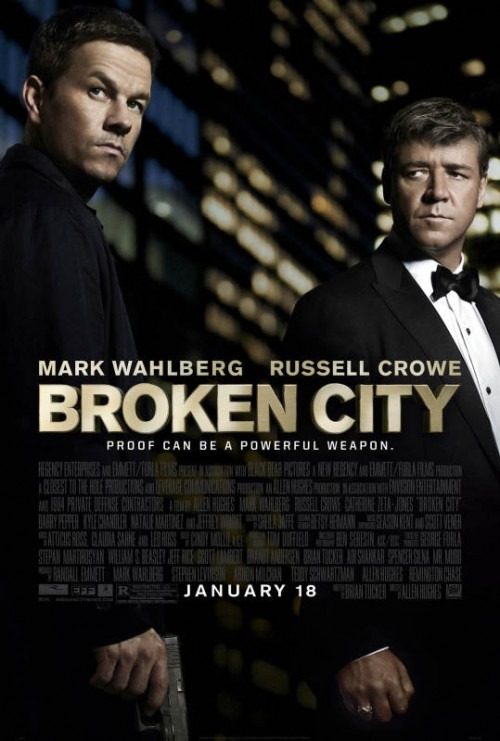
Do you even lift, bro?
A hulking block of muscles who can’t quite make ends meet with his job at Sun Gym, Daniel Lugo (Mark Wahlberg) is tired of not achieving the “American dream.” He yearns for a richer life with better gear. Inspired by a self-help seminar, Lugo decides it’s time to change and recruits two associates: his steroidally-impotent friend Adrian Doorbal (Anthony Mackie) and Paul Doyle (Dwayne “The Rock” Johnson), a coke addict who got sober and found Jesus in prison.
His foolproof mission to success? — to kidnap his sneering, wealthy gym client Victor Kershaw (Tony Shalhoub), get him to sign over all his assets, and bask in the wealth. The heist doesn’t quite go as planned (of course), but the kidnappers succeed, free to spend their share. Kershaw, however, vows revenge, and turns to a private eye (Ed Harris) to help him get his life back.
Sounds ridiculous, right? It is. Here’s the best part: It’s a true story, based on the real-life crimes of the “Sun Gym” gang from 1994-95. It’s just the kind of crime-riddled, sensational, over-the-top story that director Michael Bay loves, and this time he gets to remind us that everything (in some sense) really happened. During one chase scene, he actually stops the movie to throw up a reminder to the audience that this is “still a true story.”
His directorial hand is, actually, right on point for the task at hand. With quick cuts, slow-mo action scenes, and flashy aesthetics, it’s exactly the kind of action-packed embellishment you’d expect from Bay but now with a tinge of irony.
Maybe it’s increased self-awareness for the “Transformers” director, not just because he managed to limit himself to only one explosion, but because “Pain & Gain” starts to feel simultaneously like a celebration and a critique of the ridiculousness typically peddled in a Bay production. If it’s intentional, it’s pretty good. If it’s not, well, the film has some merit anyway.
The film is still classic Bay, with plenty of cheap humor perpetuating negative stereotypes; best-case scenario, it is a way to disconnect the audience from the characters. Between the glitz, grime, and body parts at home in any movie touched by Michael Bay, we have three bumbling meatheads, obsessed with wealth and muscles but complete caricatures of the real-life criminals. Props to the trio of actors who are able to ride the line of hilariously sympathetic but simultaneously villainous.
The film boasts a pretty robust cast all around; Rebel Wilson, Rob Corddry, and Ken Jeong also make appearances, beefing up the comedic side. There definitely are laughs to be had, even if they’re awkwardly fit in around the reminder that these were real people, crimes, and tragedies.
At times the film is hindered by pandering tactics, but the bizarre narrative and strong-acting chops do enough heavy lifting to make for, well, exactly what one might expect: a ludicrous heist movie that proves that sometimes the truth is stranger than fiction.
The verdict: It’s not the worst thing you’ll see; just know it’s a Michael Bay movie.
